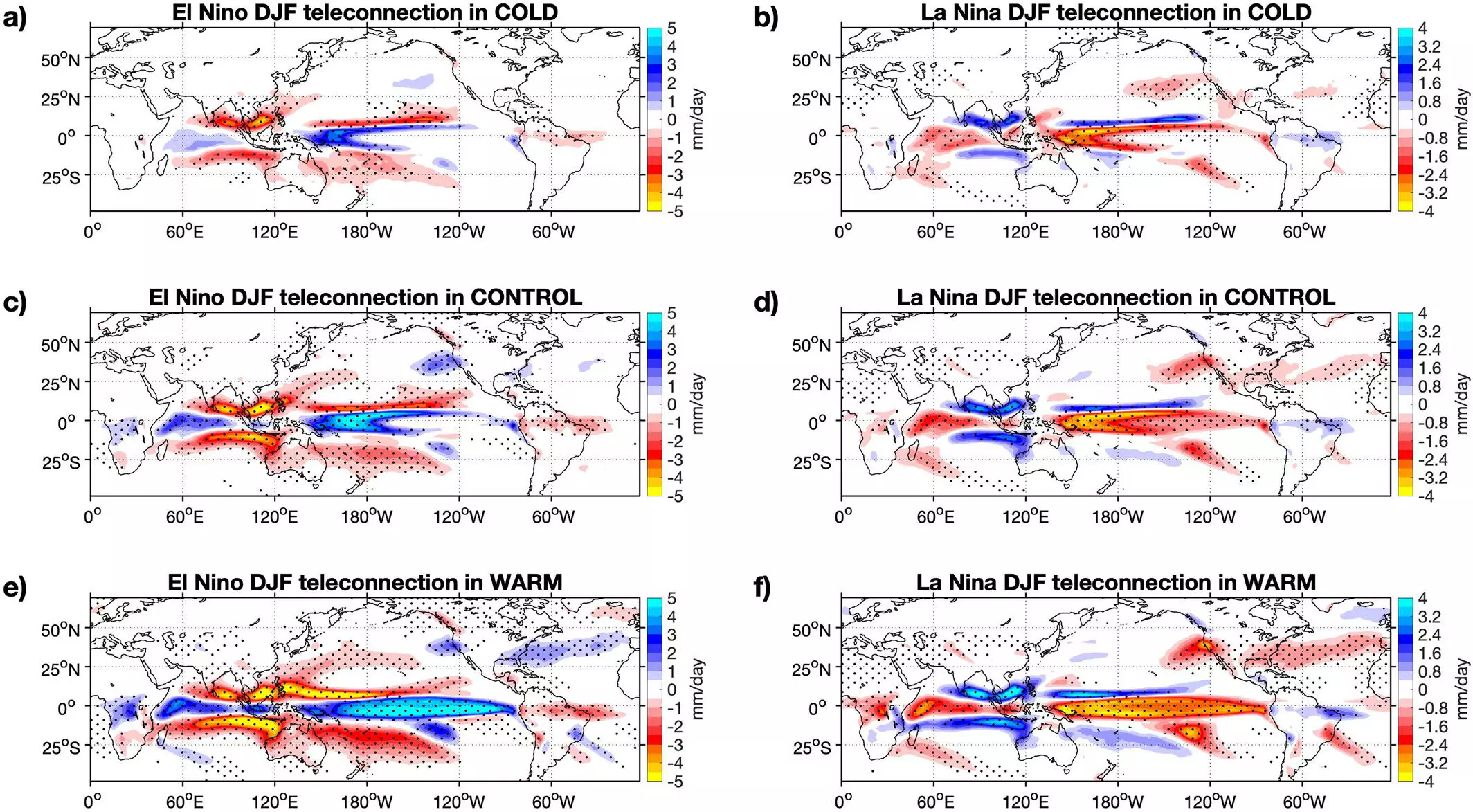Recent research conducted by a group of physicists and oceanologists from institutions in Germany has shed light on the concerning possibility of reaching a tipping point for extreme El Niño events. The El Niño-Southern Oscillation (ENSO) is a climate phenomenon that affects weather patterns globally, with increased rainfall in some regions and droughts in others. The study utilized the CESM1 climate model to simulate potential scenarios under current emission levels, showing that if temperatures continue to rise, a tipping point could be reached where virtually all ENSO events become extreme.
According to the findings, it is estimated that there could be a significant increase in global temperatures, with a rise of up to 2.9°C by the year 2100 if greenhouse gas emissions are not curbed. If temperatures surpass this threshold and reach 3.7°C, the model predicts a shift towards more frequent and severe ENSO events. This alarming forecast suggests that extreme weather conditions could become a regular occurrence, occurring as often as every four years.
The implications of such extreme ENSO events are far-reaching, with potential consequences for regions across the globe. The model indicates that there could be significant changes in precipitation patterns, with the Gulf Stream shifting southward and leading to decreased rainfall in Canada and parts of the northern U.S. Conversely, southern regions of the U.S. could experience higher levels of precipitation, altering ecosystems and agricultural practices.
Challenges in Mitigating Climate Change
The study highlights the challenges posed by climate change and the urgency of reducing greenhouse gas emissions to prevent further warming of the planet. Even if efforts are made to curb emissions, the researchers caution that it could take centuries for weather patterns to normalize. This underlines the importance of taking immediate action to address climate change and mitigate its impact on the environment and society as a whole.
The research serves as a stark reminder of the potential consequences of unchecked climate change and the pressing need for global cooperation in addressing this critical issue. By understanding the implications of extreme El Niño events, we can work towards developing strategies to decrease emissions, protect vulnerable communities, and preserve the planet for future generations.


Leave a Reply